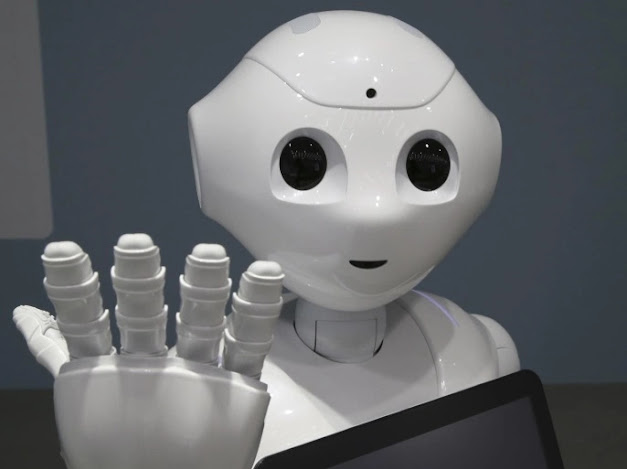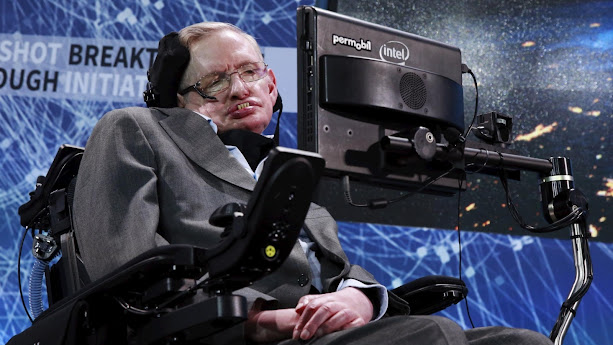What's artificial intelligence? What's the most striking manifestation of it?
What's artificial intelligence?
 |
| artificial intelligence |
The term "artificial intelligence" has become so much used these days, that some people are worried that it could mean taking over machines and decaying human roles, even though reality is still too far away from that perception, so what is artificial intelligence? And what's his most striking manifestation? And where's his development come to?
Artificial intelligence is defined as the intelligence displayed by machines and programs that mimics human intellectual abilities and their working patterns, such as the ability to learn, conclude, and react to situations not programmed in the machine, and is the name of an academic field on how to create computers and software capable of intelligent behavior.
Senior researchers define artificial intelligence as "the study and design of intelligent systems that absorb their environment and take action that increases their chances of success," while John McCarthy, who coined the term in 1955, defines it as "the science and engineering of making smart machines."
In recent years, the evolution of artificial intelligence (AI) has jumped large, and "deep learning" is the most visible manifestation of it. It is based on the development of industrial neural networks whose functioning mimics the human brain, that is, they are able to experiment, learn and develop themselves without human intervention.
Deep Learning has demonstrated its ability to recognize images, understand speech, translate from language to language, and other capabilities that have lured American companies in Silicon Valley, namely Facebook and Google, to invest and intensify research into them, ignoring warnings that the evolution of artificial intelligence may threaten humanity.
 |
| Physicist Hawking is one of the most famous warning about the dangers of artificial intelligence and the ability of machines to redesign themselves (Reuters) |
Fears
In December 2014, renowned physicist Stephen Hawking pointed out that the development of complete artificial intelligence could set the stage for the annihilation of the human race, warning of the ability of machines to redesign themselves.
Microsoft founder and former president Bill Gates announced last year that he wanted the robots to stay a little stupid, and said, "I'm in a camp who's worried about super intelligence."
In October 2015 American inventor and investor Alon Musk described artificial intelligence as one of the greatest threats to human existence, and likened the development of smart machines to "conjuring the devil."
Musk (founder of the commercial space rocket project SpaceX, Tesla Electric Cars) and others are investing millions of dollars in research to discover the potential risks of artificial intelligence and how to handle it.
 |
| Despite the human shape that some human robots look like, they are still stupid according to artificial intelligence (Reuters) |
slow development
In contrast, some experts are of the view that artificial intelligence technologies will not pose any risks to mankind, including Professor of Computer Science at the Canadian University of Montreal, Joshua Bingyu, who believes that smart technologies should not be worried about.
Bingyu asserts that access to artificial intelligence in its expected form will not come as a surprise, that is, not what some would like by discovering a magical supercomputer in his own words. The production of integrated artificial intelligence systems still needs to develop existing science and create new science, that is, In other words, no one would come up with smart technology that would change the world overnight, like in science fiction movies.
 |
| The Fago computer, based on deep learning technology, was able to defeat the world in the complex game Go (Reuters) |
Future Jumps
On the other hand, artificial intelligence technologies are evolving very rapidly, becoming more complex every year, and Google and University of Toronto researcher Geoffrey Hinton see that machines will match human intelligence within five years.
Hinton is behind the development of Google's Smart Fago, which defeated the world champion in Go, but he doesn't see that we have to fear artificial intelligence, because any new technology might be frightening if it's misused, he said, and that the issue is how we handle technology in a way that doesn't hurt humans.
Google and Facebook are leaders in artificial intelligence technologies; For example, the Android phone can understand user commands, interpret foreign language phrases on signs on the roads, and support Google's search engine, which is the company's most prominent product.
As for Facebook, deep learning allows the social network to recognize faces in photos, select appropriate content and display it to the user on the latest news page, support Facebook's digital personal assistant (M), and other functions.
Google general manager Sundar Pichai believes that the age of smartphones is coming to an end to replace artificial intelligence with immediate access to necessary information, and Facebook founder and CEO Mark Zuckerberg believes that devices with artificial intelligence will one day be able to enjoy human senses like vision and feeling more than humans themselves.

Post a Comment